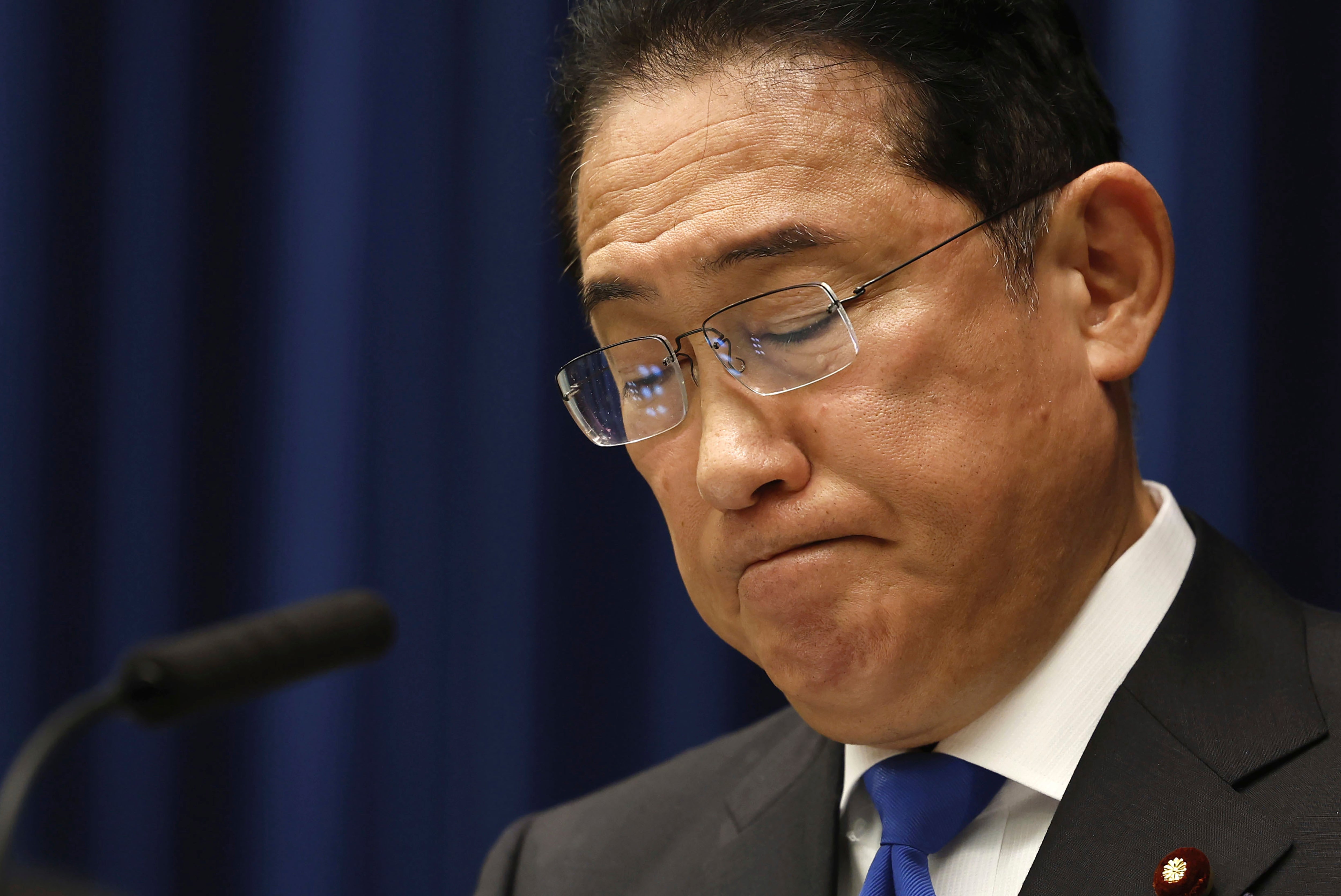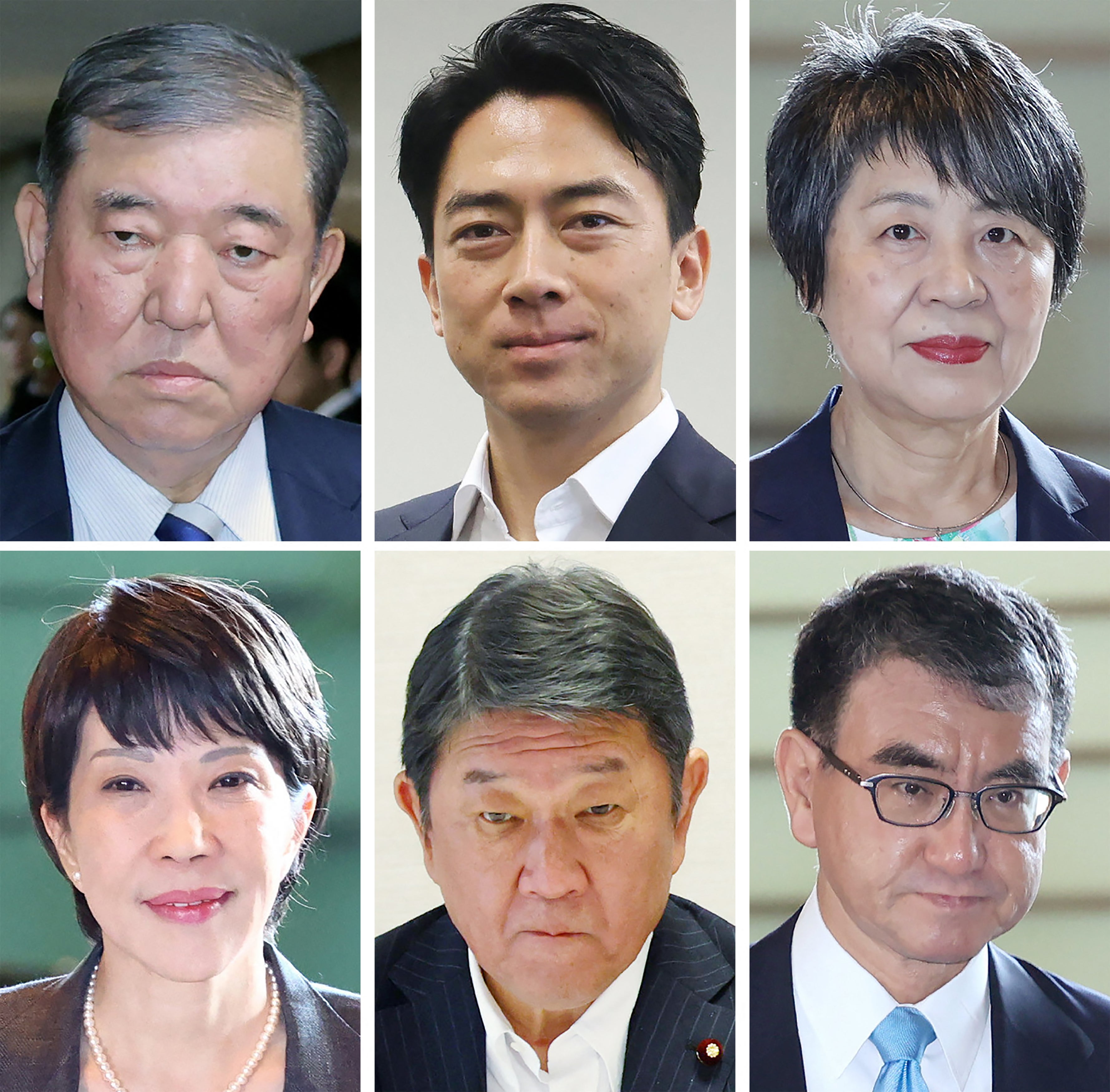Japan’s ruling party set to choose new leader as PM Fumio Kishida plans to step down soon
Japan’s ruling party will hold a leadership vote next month following Prime Minister Fumio Kishida’s unexpected decision to step down

Your support helps us to tell the story
From reproductive rights to climate change to Big Tech, The Independent is on the ground when the story is developing. Whether it's investigating the financials of Elon Musk's pro-Trump PAC or producing our latest documentary, 'The A Word', which shines a light on the American women fighting for reproductive rights, we know how important it is to parse out the facts from the messaging.
At such a critical moment in US history, we need reporters on the ground. Your donation allows us to keep sending journalists to speak to both sides of the story.
The Independent is trusted by Americans across the entire political spectrum. And unlike many other quality news outlets, we choose not to lock Americans out of our reporting and analysis with paywalls. We believe quality journalism should be available to everyone, paid for by those who can afford it.
Your support makes all the difference.Japan's ruling party said Tuesday it will hold a vote on September 27 to choose its new leader after Prime Minister Fumio Kishida’s surprise announcement that he will be stepping down.
The internal election must be held by the end of September, which marks the end of Kishida's three-year term and will only include the party's parliamentarians and its 1.1 million dues-paying members. The winner will be the head of the Liberal Democratic Party and the country's prime minister as the party and its smaller coalition partner control Japan's two-chamber parliament.
Last week, Kishida — who took office in October 2021 — said he was bowing out of the race to pave the way for a new leader to form a united LDP to make a fresh start to regain public trust, badly hurt by the party's extensive corruption scandal, causing his support ratings to dip below 20%.
Within days of the prime minister's declaration, local media has speculated nearly a dozen possible candidates, with some already announcing their interest in leading a party desperate for public support.
A younger lawmaker, former Economic Security Minister Takayuki Kobayashi, 49, was the first to announce his candidacy Monday. Others whose names have been floated around as possible candidates include former Environment Minister Shinjiro Koizumi, 43, three of the party's female veterans, Foreign Minister Yoko Kamikawa, Economic Security Minister Sanae Takaichi and former Gender Equality Minister Seiko Noda, as well as past runner-ups, Digital Minister Taro Kono as well as former Defense Minister Shigeru Ishiba who is an all-time favorite among the general public.

Each candidate needs support from 20 party lawmakers to run which usually requires time to drum up.
The LDP election committee chief Ichiro Aisawa said Tuesday that his party takes seriously the loss of public trust due to the scandals and that it has set a 15-day campaign period, instead of the usual 12 days, beginning Sept. 12 so voters have more time to study the candidates’ visions and policies. He also called on potential candidates to make their campaign as frugal as possible, “taking into consideration the public criticisms over money and politics.”
Voters will cast their ballots in a system that divides power between the party’s elected lawmakers and its membership at large, with each group getting 50% of the vote
The scandal that engulfed the LDP centered on unreported political funds raised through tickets sold for party events. It involved more than 80 LDP lawmakers, mostly belonging to a major party faction previously led by assassinated former Prime Minister Shinzo Abe.